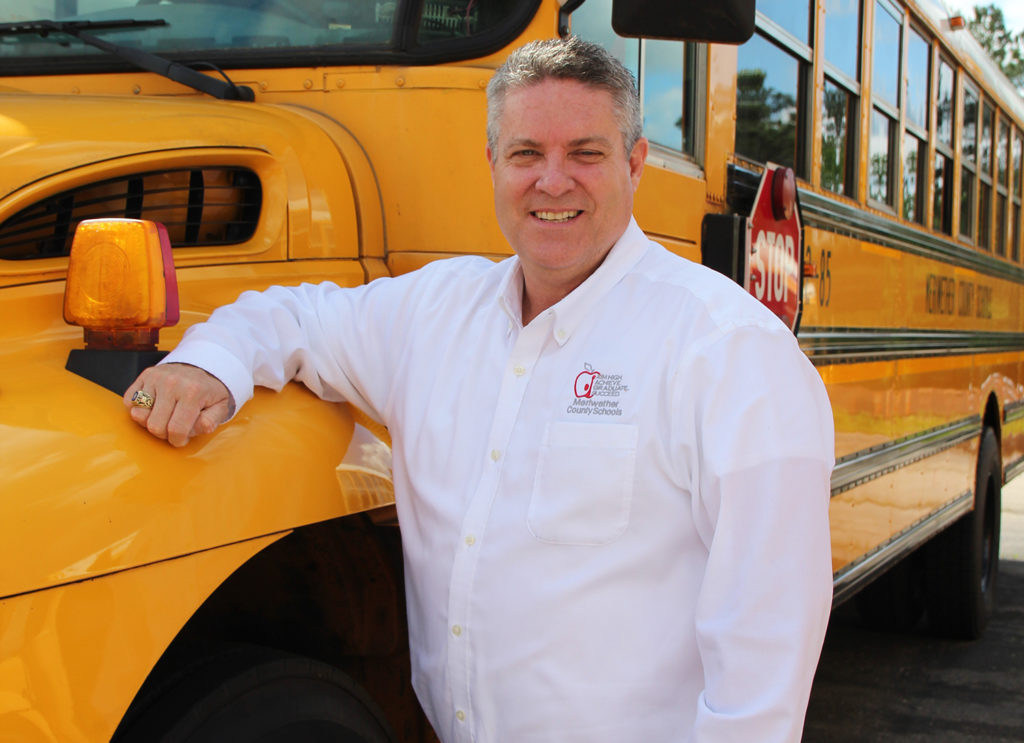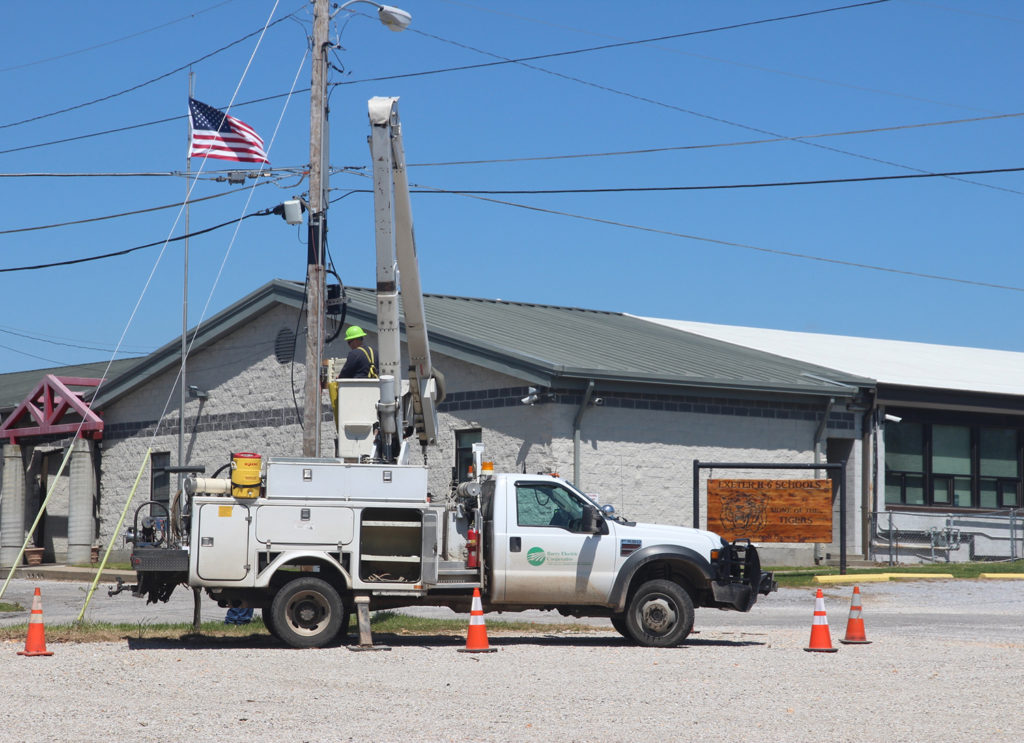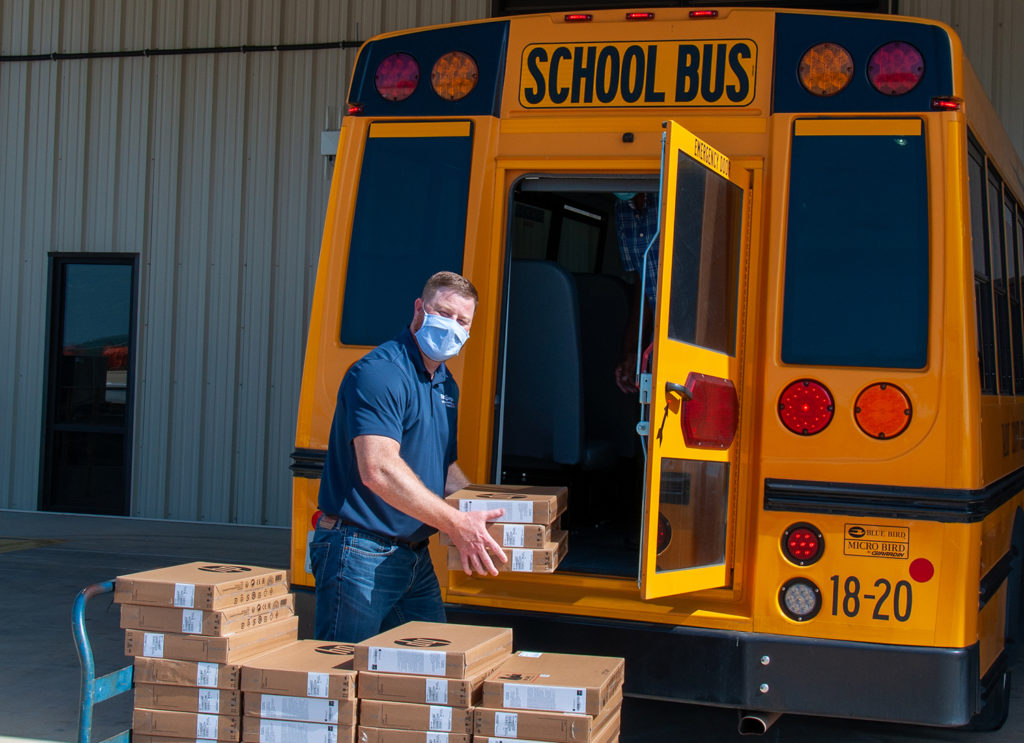
As a new school year gets under way amid the ongoing COVID-19 pandemic, electric cooperatives across the country are implementing broadband internet solutions to keep students connected to virtual classrooms even in the most remote and impoverished communities.
Orcas Power & Light Cooperative serves about 12,000 members spread across dozens of small villages that dot 20 islands in Washington state’s San Juan County. Only four of those islands have public ferry access. When the coronavirus forced school closures last spring, OPALCO and its internet subsidiary, Rock Island Communications, learned from the superintendent that what students needed most was fast, reliable internet at home.
Rock Island staff managed to quickly deploy fixed wireless or hotspot solutions to deliver internet access specifically to students’ school-provided learning devices. Now, every schoolkid in OPALCO’s service territory, no matter their location or family income, can learn in a virtual classroom.
“Access Education was realized, designed and executed to 114 homes in just a little more than two weeks,” said Suzanne Olson, the co-op’s public relations administrator.
Rock Island provided free connections for “a seamless solution for kids and the schools” and plans to continue the Access Education program through the 2020-21 school year, she said.
School officials hailed the co-op internet provider as “an invaluable educational partner.”
“Now all district students and staff are connected in virtual classrooms with online resources to continue their teaching and learning,” San Juan School District Superintendent Kari McVeigh wrote to Rock Island.
Kit Carson Electric Cooperative shares a similar goal of connecting every student in its high-poverty service areas to broadband internet. Since the start of the pandemic, the Taos, New Mexico-based co-op has provided free broadband connections to more than 250 students in low-income households and offered them discounted monthly rates.
Connecting the remaining 1,300 students who lack broadband internet will cost about $2.6 million, said CEO Luis Reyes.
The co-op set up 23 permanent public hotspots for free Wi-Fi across the rural communities and tribal lands it serves. But Reyes said distance learning for many students in the five school districts and two universities the co-op serves will require more.
“Rural students without a broadband connection will not have the same opportunities or benefits as broadband-connected students,” he said.
Reyes recently testified on this issue before the New Mexico legislature, citing National Center for Education Statistics numbers that show “the digital divide disproportionately impacts students of color, those who are economically disadvantaged, and students in more rural and/or remote areas.”
“The nationwide disruption of K-12 and higher education caused by the COVID-19 pandemic and ensuing school building closures has led to a deepening of the digital divide,” Reyes told state lawmakers.
Hamilton, Alabama-based Tombigbee EC’s freedomFIBER is installing broadband for up to 2,000 low-income member households that received vouchers from the Alabama Broadband Connectivity for Students program. Republican Gov. Kay Ivey marked $100 million in federal CARES Act funds for the public-private partnership to provide internet access for qualifying K-12 students this fall. The vouchers will cover broadband internet access costs through the end of December.
“We started our broadband project in 2017 to help our community, but we had to move fast to respond to new state and federal funding opportunities,” said Brenda Overton, CFO at the 9,000-member co-op. “We got all our bases covered. But this is what we live for—it is the cooperative spirit in action, because broadband has become an even more profound issue in the last six months with the pandemic.”
Like Kit Carson, many co-ops across the country installed free Wi-Fi hotspots in convenient locations for students and parents at the pandemic’s start and continue to run them as the new school year gets under way.
Tipmont REMC, headquartered in Linden, Indiana, has built a dozen hotspots across its service territory through its broadband subsidiary, Wintek. Burgaw, North Carolina-based Four County EMC set up access points at nine locations, including six schools. Young Harris, Georgia-based Blue Ridge Mountain EMC also offers connectivity in nine parking lots at churches, schools, a recreation center and store across its rugged territory.

Barry Electric Cooperative’s free Wi-Fi at three high school parking lots comes with parental control software “to restrict the use of the hotspot to keep kids safe,” said Laura Holycross, member services coordinator for the Cassville, Missouri-based co-op.
The co-op’s broadband subsidiary, goBEC Fiber Network, is also working with low-income referrals from a local community agency that received CARES Act funds for broadband. Holycross said the co-op will then provide internet service at a discounted rate to help make the funds go further.
Some co-ops are helping turn school buses idled by the pandemic into smart buses with mobile Wi-Fi hotspots.
Southern Rivers Energy, based in Barnesville, Georgia, awarded four school systems $15,690 in Operation Round Up grants to equip up to 16 buses with Wi-Fi. Multiple internet providers can use the equipment to provide hotspots.
“As a parent working from home and home-schooling two children with poor internet service, I felt like this could be a huge benefit for our communities,” said Erin Cook, SRE’s director of marketing and member services.
Some co-ops have found other ways to fill their communities’ education needs amid the ongoing pandemic.
Flint Energies is bridging the digital divide by donating 200 Chromebooks, worth $90,000, to six rural school districts in its 17-county territory in Georgia. The Reynolds-based co-op and its charitable foundation held an emergency meeting in August and agreed this donation would be a quick, effective way to help rural families.
“We saw our rural students’ great need for technology and did what we could in short order to improve their access to online learning,” said Marian McLemore, vice president of cooperative communications. “Our Chromebook donation would not be possible without those Flint members who participate in our Operation Round Up® program. The small change they donate each month made this gift and so much more possible.”

In the western mountains of Virginia, BARC Electric Cooperative gave $6,000 to each of the three public school systems it serves. The Millboro-based co-op applied matching funds from CoBank’s Sharing Success program to make the $18,000 donation possible.
“We are fortunate to have access to the CoBank program and even more fortunate to be in a financial position during this pandemic to be able to make these donations,” said Mike Keyser, CEO of BARC, whose broadband subsidiary BARC Connects also serves the schools.
“As a cooperative that both serves the community and is composed of people raised in the community, there is no more valuable investment this organization can make than in supporting our schools.”
Consolidated Cooperative, based in Mount Gilead, Ohio, was installing free Wi-Fi hotspots in the parking lots of the 10 school districts it serves with broadband internet when it got a different request: Could the co-op livestream a drive-up high school graduation?
The May ceremony for Centerburg High School’s class of 2020 would take place in its parking lot. Upholding state policy to control the spread of COVID-19, the graduates got out of their cars as their names were called and walked across a temporary stage to receive their diplomas before returning to their vehicles. Attendance was limited to one vehicle per graduate.
Pomp and circumstance were nowhere on Consolidated’s radar. Still, the co-op’s fiber installation crew flew into action when they got the call and ran temporary fiber out to the parking area, allowing friends and relatives to witness the ceremony safely from a distance.
“This event deeply touched all of us at Consolidated,” said Jarred Davis, network supervisor. “The ability to bring at least a little normalcy to our community meant so much to our team.”
He said the pandemic has shown how co-ops can serve their communities in many ways, while also underscoring the need for broadband access throughout rural America.
Although Consolidated’s fiber team is ready to assist with future livestream graduations, Davis said he hopes things are different by the end of this school year. “We’re optimistic that the Class of 2021 will have a more traditional experience, but if that’s not possible, you can bet Consolidated will be running fiber through the parking lot again if our community needs us.”
Cathy Cash is a staff writer at NRECA.